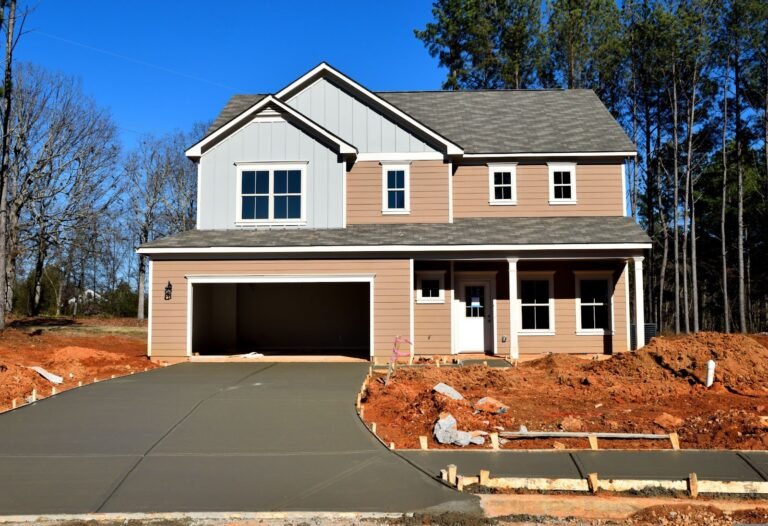Comprehensive Guide to Fencing Installation in Sacramento: Styles, Costs, and Contractors
Fencing plays a vital role in defining the boundaries of your property, providing security, enhancing privacy, and improving the aesthetic appeal of your home. In Sacramento, where the climate and landscape can vary, choosing the right fence style and installation method is essential. This guide offers an in-depth look at fencing installation in Sacramento, including different fence styles, cost considerations, and how to find reputable fencing contractors.
Different Fence Styles for Sacramento Homes
Choosing the right fence style is crucial to achieving the desired look and function for your property. The style you select will depend on your specific needs, whether it’s privacy, security, or purely for decoration. Here are some of the most popular fencing styles in Sacramento:
1. Wood Fencing
Wooden fences are a timeless choice for many Sacramento homeowners. They provide excellent privacy, are versatile in design, and offer a natural aesthetic that blends well with most landscaping styles. The most common types of wood used for fencing are cedar and redwood, which are naturally resistant to pests and decay.
- Advantages of Wood Fencing:
- Privacy: Wood fences are solid and can be installed without gaps, offering a high level of privacy.
- Aesthetic Appeal: Wood fences can be customized with various heights, stains, and designs.
- Eco-friendly: Being made from natural materials, wood fences are a sustainable option.
- Disadvantages of Wood Fencing:
- Maintenance: Wooden fences require regular maintenance, including staining or painting to protect them from weathering.
- Durability: Although durable, wood can be susceptible to termites, rot, and weather damage over time.
2. Vinyl Fencing
Vinyl fences are a modern alternative to wood, offering durability and low maintenance. Made from PVC (polyvinyl chloride), these fences are resistant to weather, rot, and insects. They come in various styles, including privacy, picket, and ranch rail designs.
- Advantages of Vinyl Fencing:
- Low Maintenance: Vinyl does not require regular staining or painting, making it easy to maintain.
- Durability: Resistant to rot, warping, and fading, vinyl fences can last for decades.
- Versatility: Available in various colors and styles to complement any landscape.
- Disadvantages of Vinyl Fencing:
- Cost: Vinyl fencing is generally more expensive upfront than wood fencing.
- Limited Customization: While available in many styles, vinyl fences are less customizable than wood fences in terms of design.
3. Chain Link Fencing
Chain link fences are a popular choice for those seeking a cost-effective option for property boundaries or securing a yard. They are typically made from galvanized steel, offering a durable solution for many types of properties.
- Advantages of Chain Link Fencing:
- Affordability: Chain link fences are one of the most affordable fencing options available.
- Security: These fences provide adequate security for homes and businesses, especially when combined with privacy slats.
- Low Maintenance: Chain link fences require minimal upkeep and do not need to be painted or stained.
- Disadvantages of Chain Link Fencing:
- Aesthetic Limitations: While functional, chain link fences lack the visual appeal of other fencing styles.
- Privacy Concerns: Without additional privacy slats or foliage, chain link fences do not provide much privacy.
4. Wrought Iron Fencing
Wrought iron fences are a durable and elegant option for homeowners looking to enhance the security and curb appeal of their property. These fences are made from wrought iron or steel and are often used for ornamental purposes as well as security.
- Advantages of Wrought Iron Fencing:
- Strength and Durability: Wrought iron fences are strong and resistant to wear and tear.
- Aesthetic Appeal: These fences offer a high-end, sophisticated look that adds value to any property.
- Security: Wrought iron fences provide excellent security without sacrificing style.
- Disadvantages of Wrought Iron Fencing:
- Cost: Wrought iron fences can be expensive due to their material and the skill required to install them.
- Maintenance: While durable, wrought iron requires periodic maintenance to prevent rust and corrosion.
5. Aluminum Fencing
Aluminum fences are similar to wrought iron fences but are lighter and less expensive. They offer a similar appearance but are more resistant to rust and corrosion, making them an excellent choice for Sacramento’s varying weather conditions.
- Advantages of Aluminum Fencing:
- Low Maintenance: Aluminum fences do not rust or corrode, reducing the need for regular upkeep.
- Elegant Appearance: Aluminum fences provide a sleek, sophisticated look.
- Durability: Lightweight yet strong, aluminum fences are a long-lasting option.
- Disadvantages of Aluminum Fencing:
- Cost: Aluminum fences can be more expensive than wood or vinyl, although they are more affordable than wrought iron.
- Limited Privacy: Aluminum fences typically have gaps between the pickets, offering less privacy.
Fencing Installation Process
Installing a fence in Sacramento requires careful planning, preparation, and the right materials. The installation process involves several steps to ensure a stable, durable, and visually appealing fence.
1. Planning and Permits
Before beginning the installation, it is essential to check with the local authorities for any zoning regulations or permit requirements. In Sacramento, specific regulations govern fence height, material, and placement. Some neighborhoods may have restrictions that limit the type of fence you can install.
2. Preparing the Site
Once permits are in place, the next step is preparing the site for installation. This involves clearing the area of debris, ensuring there are no underground utilities, and marking the location of the fence posts. Proper site preparation ensures that the installation goes smoothly and prevents future issues.
3. Post Installation
The fence posts are the foundation of the fence, so it’s crucial to ensure they are installed correctly. The posts are typically set in concrete to provide stability. Depending on the type of fence, posts may be spaced a few feet apart to support the weight of the material.
4. Installing the Panels or Rails
After the posts are set, the panels or rails are attached. For wooden fences, this involves installing horizontal rails and attaching the vertical pickets. For chain link fences, the wire mesh is unrolled and attached to the posts. Vinyl and aluminum fences come pre-assembled in panels, making the installation process quicker.
5. Finishing Touches
After the main structure is in place, the final touches are applied. This may include trimming the fence to the desired height, painting or staining the wood, or adding any additional features such as gates or decorative elements.
Cost of Fence Installation in Sacramento
The cost of installing a fence in Sacramento depends on several factors, including the type of fence, materials used, the size of your property, and the complexity of the installation. Below is a breakdown of average costs for various types of fencing:
1. Wood Fencing
- Average Cost: $15 – $30 per linear foot
- Factors Affecting Cost: The price varies based on the type of wood (cedar, redwood, etc.), the height of the fence, and whether it’s a solid or semi-private design.
2. Vinyl Fencing
- Average Cost: $20 – $40 per linear foot
- Factors Affecting Cost: Vinyl fencing is more expensive than wood but offers lower maintenance costs over time.
3. Chain Link Fencing
- Average Cost: $10 – $20 per linear foot
- Factors Affecting Cost: Chain link fencing is one of the most affordable options, but the cost can increase depending on whether you add privacy slats or coatings.
4. Wrought Iron Fencing
- Average Cost: $30 – $60 per linear foot
- Factors Affecting Cost: Wrought iron fences are more expensive due to the material and custom fabrication involved.
5. Aluminum Fencing
- Average Cost: $20 – $40 per linear foot
- Factors Affecting Cost: Aluminum is a good middle ground in terms of price, offering a balance between wrought iron and vinyl fencing.
In addition to materials, you’ll also need to account for the cost of installation, which can range from $10 to $30 per hour, depending on the complexity of the job and the contractor’s experience.
Finding the Right Fence Contractor in Sacramento
Choosing a reputable fencing contractor is essential to ensure that your fence is installed correctly and meets all local building codes. Here are some tips to help you find the right contractor:
1. Research Local Contractors
Start by searching for licensed and insured fencing contractors in the Sacramento area. Look for contractors who have experience installing the type of fence you are interested in.
2. Request Multiple Quotes
Get at least three quotes from different contractors to compare prices and services. Be sure that each quote includes a breakdown of materials, labor, and any additional costs such as permits or cleanup fees.
3. Check References and Reviews
Ask for references and check online reviews from previous clients. A good contractor should have a proven track record of delivering high-quality work on time and within budget.
4. Review Contract Details
Ensure that the contract clearly outlines the scope of work, materials, and timeline. Avoid contractors who offer vague terms or try to pressure you into signing a contract quickly.
FAQs About Fencing Installation in Sacramento
1. Do I need a permit to install a fence in Sacramento?
Yes, in most cases, you will need a permit to install a fence in Sacramento. It’s essential to check with your local zoning office to determine the specific requirements for your area.
2. How long does it take to install a fence?
The timeline for fence installation depends on the size and complexity of the project. On average, a residential fence installation can take anywhere from a few days to a week.
3. How do I maintain my fence?
Maintenance varies by material. Wood fences require periodic staining or painting, while vinyl and aluminum fences are low maintenance. Wrought iron fences should be checked for rust and repainted as needed.
4. How long will my fence last?
The lifespan of a fence depends on the material and maintenance. Wooden fences typically last 15–20 years, while vinyl, aluminum, and wrought iron fences can last 30 years or more with proper care.
Conclusion
Fencing installation in Sacramento involves selecting the right fence style, understanding the costs, and choosing a reliable contractor. Whether you opt for the timeless appeal of wood, the low maintenance of vinyl, or the durability of wrought iron, your fence will add value, security, and privacy to your property. By following the guidelines in this guide, you can ensure a smooth installation process and enjoy a beautiful and functional fence for years to come.






